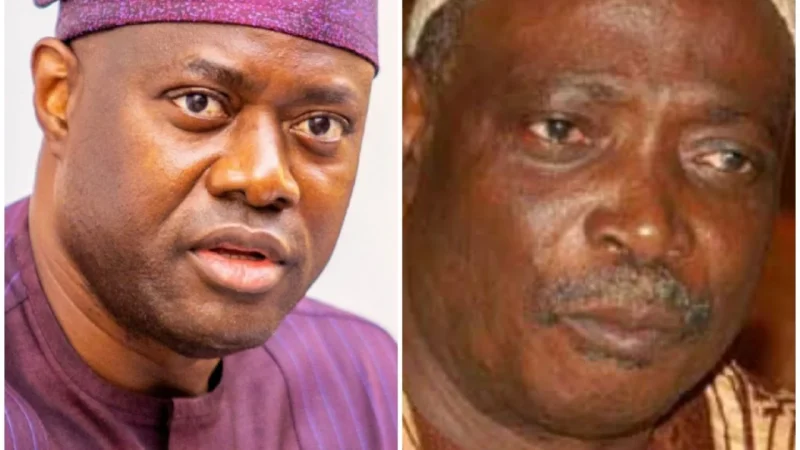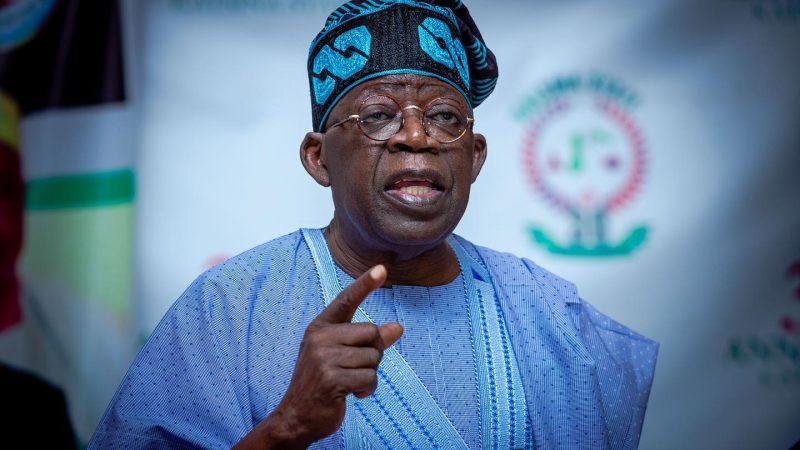By Marcel Okeke
In the twilight years of the immediate past President Muhammadu Buhari-led administration in Nigeria, foreign investors of all hues virtually left the country. However, the first quarter 2024 report of the Nigerian Exchange Group (NGX) Limited indicates that the situation is fast reversing. Indeed, total participation by foreign investors (inflow and outflow) in the first quarter 2024 was up by a whopping 296.9 per cent (year-on-year) to N213.1 billion in Q1 2024 from only N53.71 billion in Q1 2023. Specifically, Foreign Portfolio Investment (FPI) inflow rose significantly by 415 per cent (year-on-year) to N93.37 billion in Q1 2024 from N18.12 billion (Q1 2023).
On the other hand, outflow also rose by 237 per cent to N119.81 billion from N35.59 billion in the corresponding quarter of 2023. On a month-on-month basis, the total foreign investment grew to N94.28 billion in March 2024, a 43 per cent increase compared to N65.81 billion in February 2024. Similarly, the foreign investors’ stake rose (month-on-month) by 23.9 percent to N65.81 billion in February 2024, from N53.11 billion in January 2024. Also, foreign portfolio investors’ (FPIs) contribution to the total equities transaction rose to 18.39 percent from 8.15 percent between January and February 2024.
No doubt, the increase in liquidity and greater involvement of Foreign Portfolio Investors (FPIs) during the first quarter 2024 can largely be attributed to the policies and actions taken by the Central Bank of Nigeria (CBN) to address the (hitherto) backlog of foreign exchange (FX) transactions and rebuild trust in the market. Huge backlog of ‘trapped’ unremitted forex in Nigeria had for long remained a key disincentive to FPI inflow into the country.
Therefore, as investment analysts had indicated, the improved inflow of the FPIs, sequel to the CBN’s recent reforms, now provide the badly needed stability in the foreign exchange (FX) market. Vice Chairman, Highcap Securities, David Adonri, had projected the resurgence of foreign investment inflow into the stock market if the Central Bank of Nigeria (CBN) sustained the remittance of trapped funds to foreign investors. Adonri said: “Foreign investors’ confidence was seriously eroded by their trapped funds in Nigeria,” adding that many of them had consequently remained inactive for the past few years.
“Since this administration has made it a cardinal objective to clear the outstanding remittances, there is a silver lining for FPIs that can encourage their return. If CBN sustains the remittance of trapped funds to foreign investors, more FPIs may start flowing in this year and henceforth,” stressing that foreign investors will invest where they can move their capital in and out without hindrance. “If the profitability, liquidity and safety of investment in Nigeria are assured and the country risk is negligible, FPI will flow in,” he said.
Similarly, Head of Research, Parthian Securities, ‘Seun Dosunmu, said: “The resurgence of foreign investors in the Nigerian market is contingent upon the policies and dynamics of the foreign exchange market in 2024. The preceding year, 2023, witnessed a weakened state of exchange rate fundamentals within the Nigerian FX market, primarily attributable to a decline in foreign exchange supply.
“With the anticipation of an enhancement in supply during the year (2024), there is a potential for a modest upturn in foreign portfolio investment in the Nigerian Exchange.” Truly, the turnaround has begun, as reflected in the rising FPIs as well as relative stability in the FX market in recent weeks. Thus, boss of the CBN, Mr Olayemi Cardoso had to say during an interview with Arise Television (in Lagos) that “CBN reforms are encouraging investors to return to the country.” He said that “the foreign investors have taken an interest in understanding the reforms and how the economy has progressed.” According to the CBN Governor, as international investors invest in Nigeria, foreign exchange (FX) volatility will reduce, resulting in Naira stability.
The CBN has been rolling out a plethora of policies to stabilize the Naira, and according to Cardoso, reforms by the apex bank are already attracting foreign investors whose investments would make it possible. “Today, I would say that we have a situation where a lot of foreign portfolio investors (FPIs) are very interested in coming back to the Nigerian market,” Cardoso said
“If there is any group that has taken a methodical interest in understanding the reforms that are taking place and see how they are taking the country to a particular direction it believes is arrival, it is the FPIs,” Cardoso said, adding that having crude oil sales proceeds domiciled in the CBN also boosts the confidence of foreign investors in Nigeria, which leads to a stable economy. He said “the recent move to have NNPC and some other ministries, departments and agencies (MDAs) move their funds straight to the CBN also sends a very powerful signal and boosts investors’ confidence in our system.”
Obviously, the Central Bank of Nigeria (CBN) has been making a lot of the right moves to attract foreign portfolio investors (FPIs) into a market that burnt fingers in the last eight years, but there’s still some way to go if Nigeria must get ahead in a stiff competition for investment flows (both FPI & FDI) with other emerging markets. As momentum appears building in favour of the Naira, there are however still some knotty issues holding back the full weight of the gains from the CBN’s reforms and policies. These bottlenecks are seeing investors flock to other markets like Egypt that have also delivered a currency devaluation and quantum hike in interest rates.
One of these bottlenecks is the currency convertibility risk in Nigeria which is not helped by current rules restricting banks from borrowing Naira on behalf of foreign investors who want to participate in local bond and open market operations (OMO) auctions. Foreign investors are currently mandated to fund their accounts with the banks before they can participate in Treasury Bills and OMO auctions. They would however rather be sure they are successful at auctions before sending dollars to Nigeria.
If they have to pre-fund their auction bids, the banks would exchange their dollars for Naira and then hold the Naira un-invested if the bids turn out unsuccessful. This, essentially, has been discouraging FPIs who would like to participate in the CBN auctions but balk at the idea of the banks converting their funds to Naira whether their bids are successful or not. Commenting on this, Razia Khan, managing director and chief economist, Africa and Middle East at Standard Chartered Bank, said “The CBN will need to address the operational bottlenecks of FPI getting involved in Nigeria.” Also, “Current rules do not allow banks to borrow naira to participate in auctions, even if on behalf of foreign investors,” Khan said in response to questions posed by a Nigerian newspaper.
However, in sustaining the renewing interest in Nigeria by the FPIs, it would be apposite to further woo them by allowing them not to pre-fund their auction bids such that they only send their dollars to Nigeria when they are sure their bids are successful. This implies the CBN could get the banks to guarantee the FPIs’ bids, (i.e. if they are successful), while the Naira would be provided in 24/48 hours. No doubt, this would accelerate inflows and help push the FX rate down faster as the dollars would have to be sold to the CBN for quick Naira.
Truly, to all investors, convertibility risk for Nigeria is still considered high as the level of unencumbered external reserves and pent-up demand are yet unknown. This is because Nigeria’s external reserves, which stood at $34.98 billion as of March 14, 2024—have actually risen due to higher crude oil prices and the impact of the reforms by the CBN. Unfortunately, investors now take data on Nigeria’s external reserves with a pinch of salt since JP Morgan’s big expose last year that the net reserves were closer to $3.7 billion as at the end of 2022.
Foreign investor sentiments towards Nigeria have significantly turned the corner, especially after the jumbo rate hike at the February Monetary Policy Committee (MPC) meeting which helped narrow the negative real rates on Naira assets. Details of the MPC meeting revealed that the CBN Governor, Cardoso, wanted an even higher rate hike than the 400 basis points that was delivered, in his bid to achieve real positive interest rates on Naira assets from Treasury Bills to bonds.
While these policies and efforts of the CBN are beginning to bear fruits, it is important to emphasize that complementary measures must accompany the actions of the monetary authorities from the fiscal front. This is crucial to ensure a lasting improvement in FX supply, leading to the accumulation of reserves and a sustained boost in market liquidity.
- The author, Okeke, a practising Economist, Business Strategist, Sustainability expert and ex-Chief Economist of Zenith Bank Plc, lives in Lekki, Lagos. He can be reached via: obioraokeke2000@yahoo.com (08033075697 SMS only)





